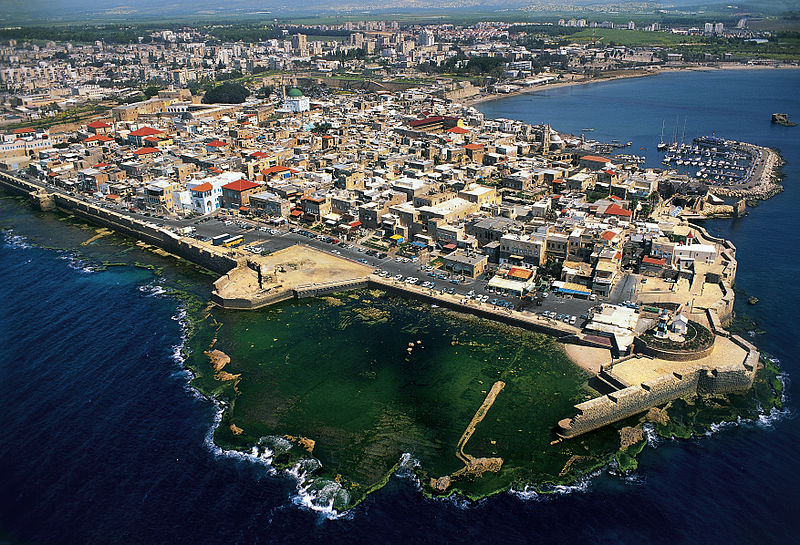1 July. Paul visits Kos and Rhodes, and sails on to Tyre and Ptolemais
"After we all said goodbye to them [at Miletus] we sailed straight to the island of Cos. The next day we reached Rhodes, and from there we went to Patara. There we found a ship going to Phoenicia..."
"We stopped at Tyre because the ship needed to unload its cargo there. We found some followers in Tyre and stayed with them for seven days. Through the Holy Spirit they warned Paul not to go to Jerusalem."
"When we finished our visit, we left and continued our trip. All the followers, even the women and children, came outside the city with us. After we all knelt on the beach and prayed, we said goodbye and got on the ship, and the followers went back home."
"We continued our trip from Tyre and arrived at Ptolemais, where we greeted the believers and stayed with them for a day."
(Acts 21:1-7)

After saying goodbye to the elders of the Ephesian church at Miletus, Paul and his companions sailed over to the island of Kos, then on to Rhodes and Patara (see 8 on the map on 28 June).
Patara (Gelemiş) was the port for Xanthus (Kinik), the ancient capital of Lycia, which was situated 10 km / 6 miles up the River Xanthus.
In Patara, Paul and his companions boarded a ship sailing to Phoenicia (see 9 on the map). They sailed south of Cyprus and reached Tyre – where they stayed for a week with the believers.
After praying together on the beach, Paul set sail for Ptolemais (see 10 on the map), where, again, they stayed with the believers.
Have you noticed that, whenever possible, Paul and his companions followed the established Jewish tradition of staying overnight with fellow believers? Jews never stayed at inns. (The 'inn' in the parable of the 'good Samaritan' was a hostelry for Romans and other foreign travellers like the Samaritans). Inns weren't 'kosher' - they served food forbidden to Jews, and Jews were forbidden from eating with Gentiles. Jews (including Jesus and his disciples) always stayed in the homes of (Jewish) believers who willingly took in their fellow believers overnight.
The early followers of Jesus took this tradition on board, welcoming fellow believers in Christ into their homes, feeding them, and providing them with somewhere safe to sleep. Today, we could do well to follow their example of generous hospitality to fellow believers from across our nations and around the world.
Have YOU asked a fellow believer round for a meal recently, or invited someone to come and stay overnight??
The photo (by Israel Tourism) shows the Roman port and town of Ptolemais.
Ptolemais (Akko) is one of the oldest ports on the coast of Palestine, and was mentioned in Egyptian records as early as 1500BC. Originally a Canaanite settlement, it grew as a trading port under the Phoenicians. It was re-named Ptolemais in honour of the Egyptian pharaoh Ptolemy II when he captured the city in 261BC, and it retained this name under the Romans.
The city had a Christian population from early days, and reached its zenith in the thirteenth century when, re-named St Jean d’Acre it became the capital of the Crusader Kingdom of Acre.
You can read more about Ptolemais @ https://www.thebiblejourney.org/…/paul-visits-cos-and-rhod…/
